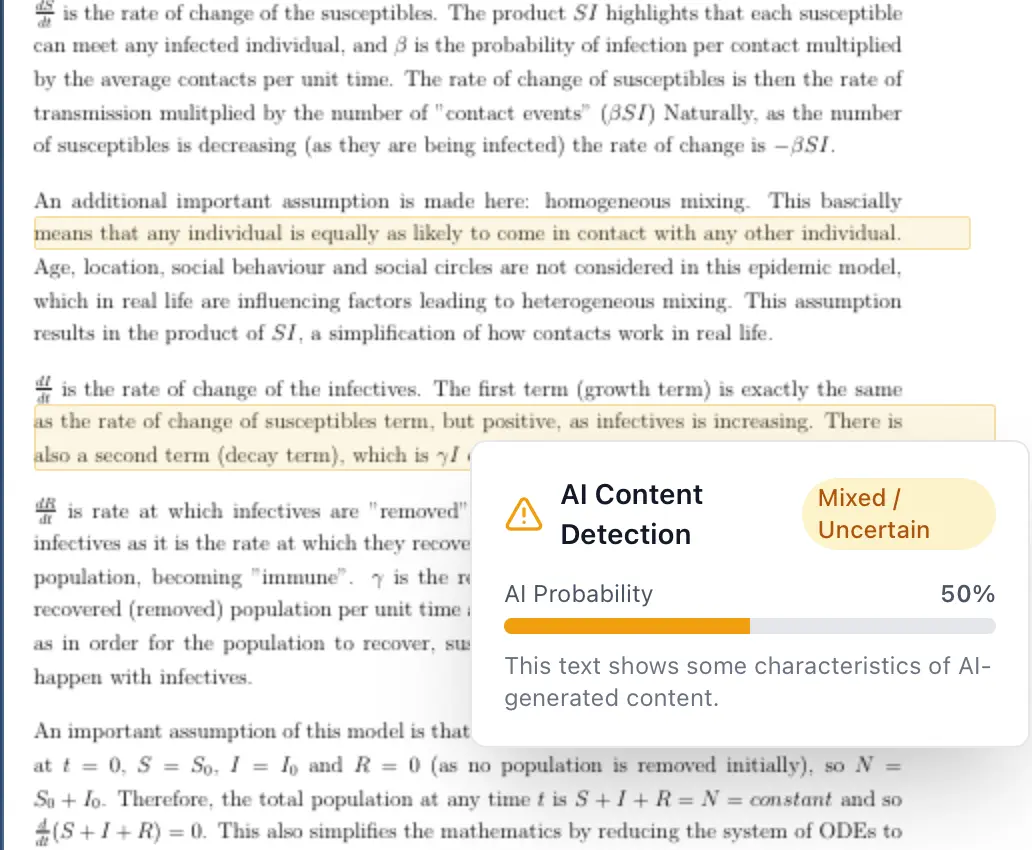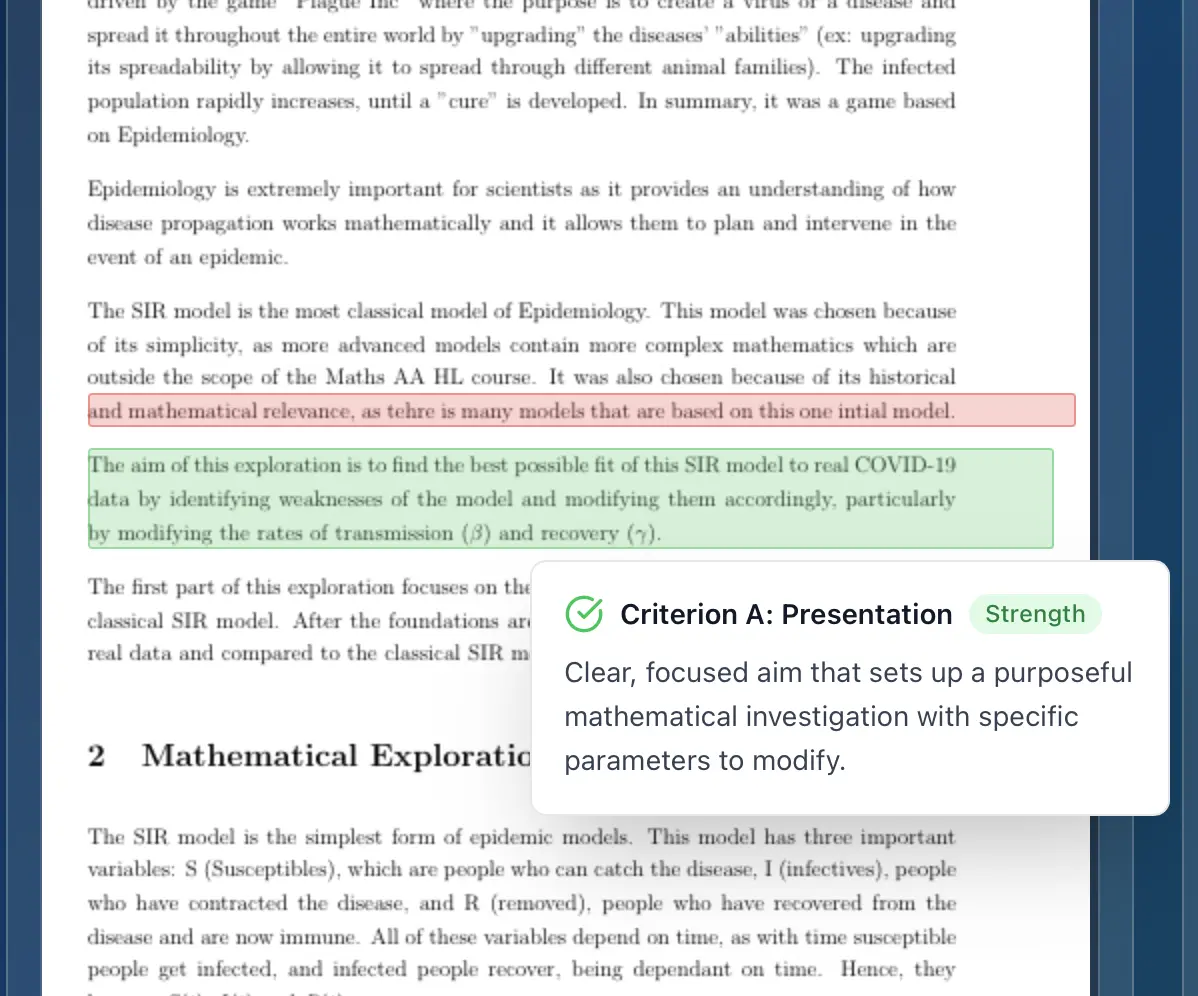What Makes a Good IB Extended Essay Research Question?
The IB Extended Essay (EE) is a significant undertaking, demanding independent research and critical thinking. A well-defined research question is the cornerstone of a successful EE. It provides focus, direction, and allows you to delve deeply into a topic that genuinely interests you. A good IB Extended Essay research question is focused, arguable, and manageable within the scope of the essay. It should allow for analysis and evaluation, rather than just description or summary. This guide will walk you through the key elements of crafting an excellent research question, common pitfalls to avoid, and advanced strategies to help you excel in your IB journey.
Understanding the Importance of a Strong Research Question
The research question isn't just a formality; it's the compass that guides your entire EE. A weak question can lead to unfocused research, superficial analysis, and ultimately, a lower grade. A strong question, on the other hand, provides a clear path for your investigation, allowing you to demonstrate your understanding of the subject matter and your ability to think critically.
Think of it this way: the research question is the seed from which your entire essay grows. A healthy seed produces a strong plant.
Struggling with IB Assessments?
Get instant, detailed feedback on your work with AI that understands IB criteria.

Core Components of a Good IB Extended Essay Research Question
Let's break down the essential characteristics of a research question that will set you up for success:
1. Focus and Specificity
A broad research question is a recipe for disaster. It's impossible to cover a vast topic in a 4,000-word essay. Your question needs to be specific and focused, allowing you to delve deeply into a particular aspect of the subject.
- Example of a broad question (bad): "What is the impact of globalization?"
- Example of a focused question (good): "To what extent has globalization impacted the cultural identity of indigenous communities in the Amazon rainforest?"
Notice how the focused question narrows the scope to a specific region, community, and aspect of globalization.
2. Arguability
Your research question should invite argument and debate. It shouldn't be a question that can be answered with a simple "yes" or "no" or a factual statement. It should require you to analyze evidence, evaluate different perspectives, and form your own informed opinion.
- Example of a non-arguable question (bad): "What are the causes of World War I?" (This is primarily descriptive)
- Example of an arguable question (good): "To what extent was the assassination of Archduke Franz Ferdinand the primary catalyst for the outbreak of World War I, considering other long-term factors?" (This requires analysis and evaluation of different factors)
3. Manageability
Consider the resources available to you and the time you have to complete the essay. Can you realistically gather enough evidence to answer your question? Is the topic too obscure or too complex for you to handle within the given constraints?
- Example of an unmanageable question (bad): "Can quantum physics explain the origins of the universe?" (This is far too complex and requires specialized knowledge)
- Example of a manageable question (good): "How has the development of quantum computing impacted the field of cryptography?" (This is more focused and allows for a manageable scope of research)
4. Relevance and Significance
Your research question should be relevant to the subject you're studying and have some significance beyond simply fulfilling the requirements of the EE. It should contribute to a deeper understanding of the topic or address a relevant issue.
- Example of an irrelevant question (bad): "What is my favorite color?" (This is subjective and has no academic value)
- Example of a relevant question (good): "How has the portrayal of mental illness in literature influenced public perception and understanding of these conditions?" (This addresses a relevant social issue and contributes to a deeper understanding of literature)
5. Clarity and Precision
Use clear and precise language in your research question. Avoid jargon, ambiguous terms, or overly complex sentence structures. Your question should be easily understood by anyone familiar with the subject area.
- Example of a vague question (bad): "How does society affect things?" (This is too broad and lacks clarity)
- Example of a precise question (good): "To what extent does social media contribute to the spread of misinformation during political campaigns?" (This uses specific terms and clearly defines the scope)
Subject-Specific Examples of Good Research Questions
Here are some examples of strong research questions across different IB subjects:
- Biology: "To what extent does the introduction of invasive species impact the biodiversity of a specific local ecosystem (e.g., a nearby lake or forest)?"
- Chemistry: "How does the concentration of a specific catalyst affect the rate of a particular chemical reaction?"
- Economics: "To what extent has the implementation of a specific government policy (e.g., a carbon tax) impacted the economic growth of a particular country?"
- History: "To what extent was the Cold War a result of ideological differences rather than geopolitical power struggles?"
- Mathematics: "How can mathematical modeling be used to predict the spread of a specific infectious disease within a population?"
- English Literature: "How does the use of symbolism in a specific novel (e.g., The Great Gatsby) contribute to the overall meaning and themes of the work?"
Common Challenges and Mistakes to Avoid
Students often struggle with crafting effective research questions. Here are some common mistakes to avoid:
- Choosing a topic that is too broad: As mentioned earlier, specificity is key.
- Selecting a topic that is purely descriptive: Your question should require analysis and evaluation.
- Failing to consider the availability of resources: Ensure you can access sufficient evidence to support your arguments.
- Choosing a topic that is not genuinely interesting to you: You'll be spending a lot of time on this essay, so pick something you're passionate about.
- Waiting until the last minute to develop your research question: Start brainstorming early and refine your question as you conduct preliminary research.
Pro Tip: Get AI-Powered Grading
Stop second-guessing your grades. Get instant feedback aligned with official IB rubrics.

Advanced Tips and Strategies for Crafting Exceptional Research Questions
Once you've mastered the basics, here are some advanced tips to elevate your research question:
- Consider counterarguments: Think about potential objections to your thesis and how you can address them in your essay.
- Explore interdisciplinary connections: Can you connect your topic to other subjects or fields of study?
- Focus on a specific case study: Analyzing a particular event, individual, or organization can provide a rich source of evidence.
- Refine your question iteratively: Don't be afraid to revise your question as you learn more about your topic.
- Seek feedback from your supervisor: Your supervisor can provide valuable guidance and help you identify potential weaknesses in your research question.
Technology and Modern Assessment: Leveraging AI for IB Success
The landscape of education is constantly evolving, and technology plays an increasingly important role in IB assessments. AI-powered tools are transforming how students learn and how teachers provide feedback.
One of the most significant advancements is the use of AI grading assistants like Marksy. Marksy provides instant, accurate, and detailed feedback on student work based on official IB rubrics. This helps students understand exactly how to improve their work and allows teachers to focus on providing personalized support.
Marksy uses sophisticated algorithms to analyze student essays and provide feedback on various criteria, such as focus, organization, analysis, and evaluation. By aligning with official IB rubrics, Marksy ensures that the feedback is consistent, fair, and relevant to the assessment criteria.
The benefits of using AI grading assistants like Marksy are numerous:
- Improved student understanding: Students receive detailed feedback that helps them identify their strengths and weaknesses.
- Increased teacher efficiency: Teachers save time on grading and can focus on providing personalized instruction.
- Enhanced assessment quality: AI ensures that assessments are graded consistently and fairly.
By embracing technology and leveraging AI tools like Marksy, IB students and teachers can unlock new levels of success in their academic endeavors.
Conclusion: Take the Next Step Towards EE Excellence
Crafting a strong IB Extended Essay research question is a critical step towards achieving a high grade. By focusing on specificity, arguability, manageability, relevance, and clarity, you can develop a question that will guide your research and allow you to demonstrate your critical thinking skills. Remember to avoid common mistakes, seek feedback from your supervisor, and leverage the power of technology to enhance your learning experience.
Ready to take your IB Extended Essay to the next level? Try Marksy for free today and experience the power of AI-driven feedback! See how Marksy can help you refine your research question, improve your essay structure, and achieve your academic goals.